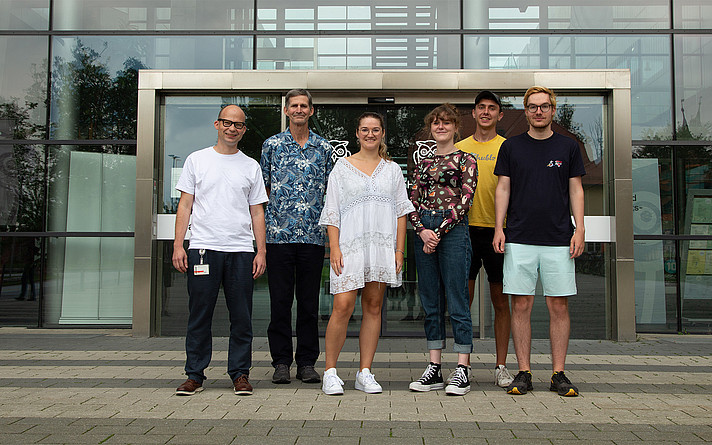Data experts Simon Ginzinger and Earl McKinney asked themselves this question and developed a predictive model.

Earl McKinney, professor at Bowling Green State University, taught as a Fulbright professor at the FH Salzburg during the summer semester. Together with Simon Ginzinger, expert in data ambiguity he taught the subject "Predictive Analytics" at the study program MultiMediaTechnology.
As part of their classes, the two researchers developed a computer model to predict the individual learning success of their students. To this end, participants in the course filled out an online questionnaire after each learning unit that assessed various factors influencing their performance (e.g. prior knowledge, interest, comprehension, time investment for homework, employment, etc.). The data collected in this way were used to train a predictive model that individually forecasted final course grades. "We succeeded in making a correct prediction in 79% of the cases," Ginzinger explains.
How can the findings be used?
"Our tool can act as a pre-alert system that gives students continuous feedback on their current performance, and it also provides information on where there is room for improvement," reveals Ginzinger. The two researchers see great potential and will continue their computer model starting in the fall as part of an internally funded project at the FH Salzburg. The goal is to develop a solution that can be used by both students and teachers.
